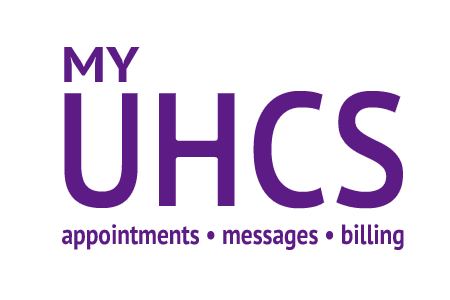Stress
Wellness Information
UHCS Services
Feeling burnt out? We have counselors who specialize in stress reduction and relaxation skills. We also have a Relaxation Room open to all UW-W students and employees. Or perhaps it's more than just stress? Let's chat. Call 262-472-1305 to set up an appointment.
Overview
There is no such thing as a “stress-free” life. A certain amount of challenge is stimulating and healthy. Stress is the deep exhaustion that results when too many demands keep us stuck in a state of low-grade flight or fight arousal, i.e. stressed out. Stress undermines our ability to concentrate which can lead to problems at work or school. Stress subjects us to mood swings and irritability that leads to problems with family, friends and roommates. Stress can cause insomnia, backaches, headaches, digestive disorders and eventually lead to major illness. Learning a few tools to help reduce and manage your stress will have a major positive impact on your overall well-being and create a happier more relaxed you. Yoga, meditation, deep breathing, mindfulness, guided imagery and energy balancing techniques are excellent tools (to name a few).
Try this simple calming breath: inhale deeply through your nose, now exhale slowly through gently pursed lips. Take 5 or 6 good breaths this way and feel yourself calmer and more present. If you’re having difficulty getting a good breath in, exhale first.
Video Resources:
Yoga:
- Boho Beautiful- Full Body Gentle Flow
- Relaxing Beginners Stretches
- Yoga for Bedtime/Relaxation
- All-Ability Yoga
Relaxation Music:
- Studio Ghibli Piano Collection
- Relaxing Music & Soft Rain
- Lofi Hip Hop Mix
- Ambient Music for Sleep, Meditation, Focus, & Relaxation
Guided Meditation:
- 20 Minute Mindfulness Mediation for Being Present
- 3 Minute Mindful Breathing
- 9 Minute Body Scan
- 15 Minute Guided Meditation
Autonomous Sensory Meridian Response (ASMR):
Resources
Disclaimer
All information on this website is written by UHCS professional staff unless otherwise noted. No data is collected on visitors to this site. Financial Support for this web site is provided by University Health & Counseling Service, Division of Student Affairs, University of Wisconsin-Whitewater. This web site does not accept advertising.
This site is not meant to replace the advice of a health care or counseling professional. You should not rely on any information on these pages, or information generated for you by this site, to replace consultations with qualified professionals regarding your own specific situation. Some links take you to a source outside of UHCS. The owners of that site, not UHCS, are responsible for the content.



